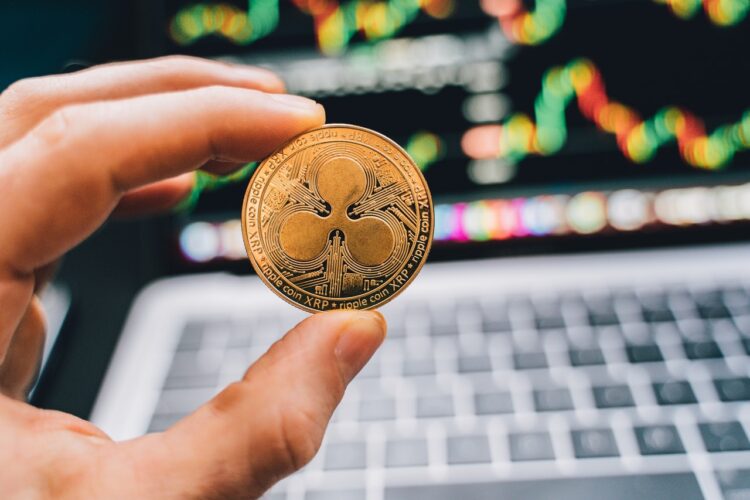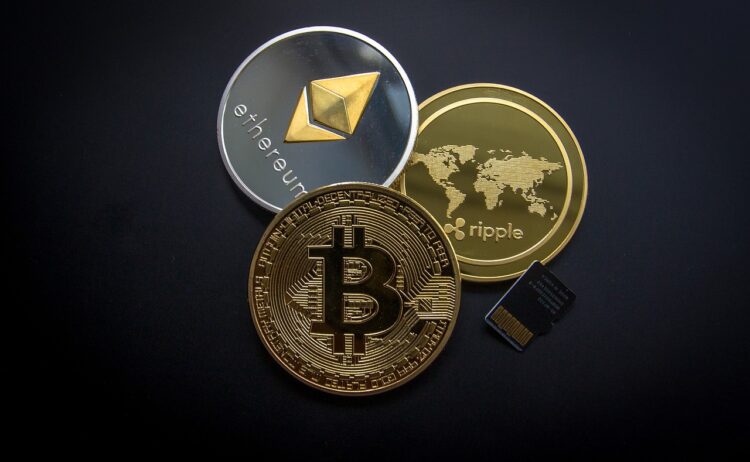Investing in cryptocurrency is a risky proposition. It’s volatile, and there are no legal protections if something goes wrong. But that doesn’t mean it’s impossible to make money off this hot new asset class—you just need to approach the market with a healthy dose of caution.
Table of Contents
Is cryptocurrency a safe investment?

Cryptocurrency is a very risky investment. It’s not backed by any government or central bank, nor is it insured by the FDIC. You also can’t rely on the Securities Exchange Commission (SEC) to protect you from fraudsters or scammers looking to take advantage of your money. Cryptocurrency isn’t even guaranteed to maintain its value over time–in fact, its value could change dramatically in just a few hours.
Are there security risks associated with cryptocurrency?

Paying with crypto comes with limited legal protections f
Cryptocurrency transactions are irreversible, so if you send money to the wrong person or buy something that never arrives, there is no way to get it back. This means that if a scammer asks for payment in cryptocurrency and then disappears with your funds before you can verify their identity or check out their location, there’s nothing left for you but heartbreak and disappointment.
You also can’t chargeback a transaction like you can with a credit card–if someone steals your credit card and makes fraudulent purchases with it, all those purchases will be reversed by your bank once they’re detected (assuming they weren’t made overseas). But when using cryptocurrency as a payment method there’s no such thing as reversing an error–the money has gone out into the world forever.
Cryptocurrency scams are common
Cryptocurrencies are a new investment class, and scams are common. The cryptocurrency space is unregulated and there are no rules against fraud. Scammers often use sophisticated tactics to mislead investors into believing their investment opportunities are legitimate, but they’re not.
Scams can be hard to spot because they’re often well-funded and sophisticated. Scam artists may appear as authoritative figures in the industry, like “experts” or even ICO founders themselves (who have been known to engage in such behavior). They also tend to use social media platforms like Twitter, Telegram and Reddit for promotion purposes–so if you see someone tweeting about an ICO that seems too good to be true, beware.
You can’t “take back” a cryptocurrency transaction

Cryptocurrency transactions are irreversible, which means that once you send your coins to another person, they’re gone forever. This can be a good thing–it helps prevent fraud and theft! But it also means that if you accidentally sent money to the wrong address or sent funds to someone and then changed your mind about doing so, there’s no way for them to get their hands on those funds again.
The blockchain is an immutable database: once data has been added to its ledger (or “chain”), it cannot be altered or removed by any party involved in creating or maintaining that database. Because of this immutable nature of blockchains, any transactions made through a cryptocurrency are permanent–they cannot be reversed once completed unless both parties come together again at some point in time and agree on how best to move forward from there.
What’s the most secure way to buy cryptocurrency?

To ensure the safety of your investment, it’s best to use a reputable exchange and wallet. This means that you should only buy cryptocurrency through established companies in the space.
- If you’re buying Bitcoin or another coin directly from an exchange, then make sure it has been around for at least two years and has good reviews online. You can also check whether they have been operating illegally by searching their name on Google along with “scam” or “fraud.”
- If you’re using an online wallet service like Coinbase or Blockchain (which are both reputable), make sure they have good security measures in place before sending over any funds: 2FA authentication is usually required when accessing your account; if this feature isn’t available yet on these sites then don’t use them.
What’s the most secure way to store cryptocurrency?
- Hardware wallets are the most secure way to store your cryptocurrency. These devices are physical, offline storage devices that you can use to store your private keys. They connect to a computer via USB or Bluetooth and allow users to send and receive digital currencies.
- Paper wallets are another popular method of storing cryptocurrency offline. A paper wallet consists of two pieces of paper: one with your public address on it (which is shown when someone sends you funds), and another containing your private key information written down in code or QR format–which allows you access those funds when needed.
Cold storage refers to storing cryptocurrencies in an environment where they cannot be accessed by anyone else but yourself. Hot storage refers to keeping coins online at all times so they can be easily accessed by others.
5 cryptocurrency risks to consider before you invest

If you’re thinking about investing in cryptocurrency, there are some risks to consider.
1. Blockchain technology is still relatively new
Blockchain technology is still relatively new, and there are many challenges ahead. For example, blockchain technology is not yet scalable; it’s slow and expensive to use. It also doesn’t have a strong track record of security or reliability–and if you lose your private key, there’s no way to get it back.
Additionally, while cryptocurrencies are becoming more popular with investors every day (and thus more valuable), they’re still wildly unpredictable–so you could easily lose money if you invest too quickly without doing your homework first.
2. Cryptocurrency is an extremely volatile investment
Cryptocurrency is an extremely volatile investment. The price of cryptocurrency, including the KCS price, can go down as well as up, which means that investors should be prepared for both scenarios. It’s a good idea to have a diverse portfolio of investments so that you aren’t too heavily invested in one sector or asset class in case it tanks.
Cryptocurrency isn’t regulated by government agencies like the Securities and Exchange Commission (SEC) or Financial Industry Regulatory Authority (FINRA), so there are no rules governing how much money an individual can invest or where they should invest their money.
Because cryptocurrency isn’t backed by gold or other assets, there’s always the possibility that someone could manipulate its value artificially through trading schemes called “pump-and-dump” schemes–so again: be careful.
3. Cryptocurrency scams are a growing concern

Cryptocurrency scams are a growing concern. While most of the cryptocurrency community is honest, there have been many cases where scammers try to take advantage of newcomers in the space.
These scams can be quite convincing, making them difficult to spot until it’s too late–and sometimes even after that point! It’s important to know what types of scams exist so that you can avoid falling victim yourself or reporting them if you come across one.
Additionally, some scams are harder than others when it comes time for victims to recover their lost funds; this article will help explain how these losses happen and what steps you should take if something goes wrong with your investment portfolio due diligence process (or lack thereof).
4. Cryptocurrencies are still largely unregulated
Cryptocurrency is still largely unregulated. Unlike fiat currencies, which are backed by governments and regulated by them, cryptocurrencies are not legal tender in most places around the world. This means that you won’t be able to use them at your local grocery store or bank (unless they decide to start accepting cryptocurrencies).
While cryptocurrency isn’t regulated by central banks, it is still subject to other risks that investors should be aware of. The most obvious one is the value of the currency itself. The value of any currency fluctuates over time and investing in cryptocurrency is risky because there’s no guarantee that the current value will hold or increase. However, there are ways to invest in cryptocurrency without having to buy coins themselves, like trading pairs such as USDT USDC.
Conclusion

The bottom line is that cryptocurrency is a risky investment. But it’s not necessarily more risky than other types of investments, like stocks or bonds. If you do your research and understand the risks involved with investing in any kind of asset class, then you’ll be able to make smart decisions about how much risk you’re willing to take on and whether or not cryptocurrency makes sense for your portfolio.
